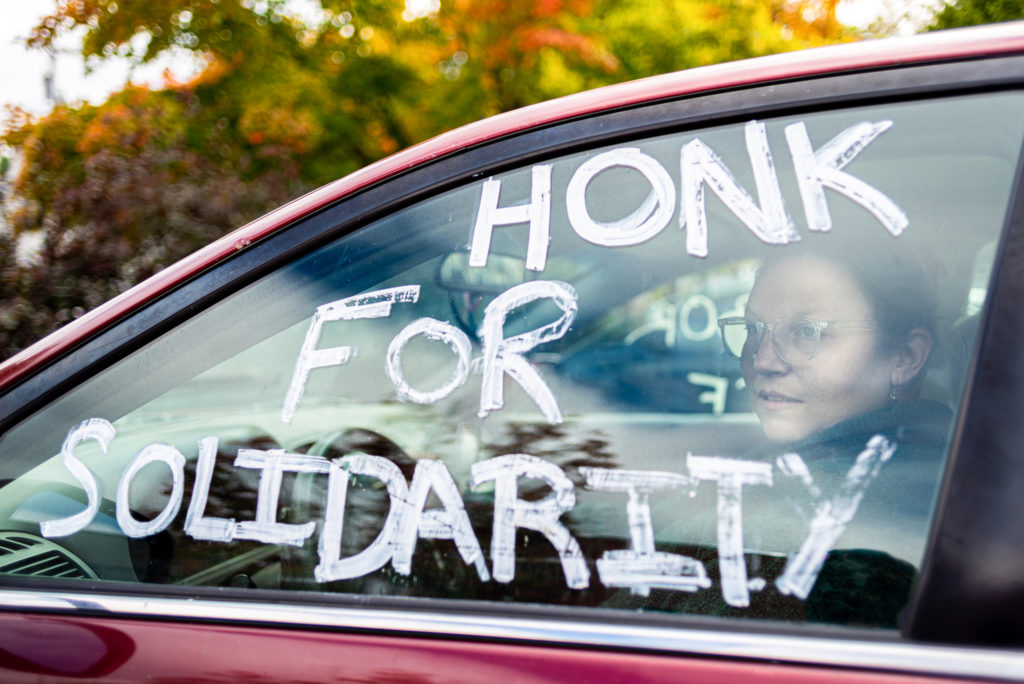Brandi shared her story as part of MECEP’s State of Working Maine 2022 report. Click here to view the full report, as well as other workers’ stories.
Brandi McNease worked in the food service industry as a cook, server, manager, and trainer for 20 years. In her most recent position as a trainer for an international restaurant franchise, Brandi sought to improve staff retention by advocating for better pay and working conditions. When she and her fellow workers tried to unionize, their Augusta franchise was closed.
“Restaurant workers are taking on an unprecedented workload while being treated progressively worse by bosses and customers alike. The work is often dangerous, physically demanding, and stressful. We are seen as the ‘servants’ — the peasants. We live paycheck to paycheck and we’re one emergency away from being without a basic need.
As a manager, I had a stressful and unpredictable schedule. I frequently worked more than 50 hours per week and had to fill in the gaps when we were short-staffed. As a single mother, the schedule left me unable to be there for my child, both physically and emotionally. I chose to leave for an office job in 2019 for better work-life balance, but also out of defeat. I couldn’t work 60 hours in a week, I couldn’t hold the crew accountable to ridiculous expectations, and I absolutely wouldn’t make our community sick.

In 2022 I came back as a trainer, with the goal of empowering the crew and lowering the turnover rate for a more functional workplace. But if our expectations were unreasonable in 2019, now they are just plain impossible. With the explosion of online ordering and delivery services, our existing crew is shouldering more work than ever while remaining severely short-staffed.
We were called ‘essential’ during the pandemic — ‘heroes’ even. Now that dining out is considered a luxury again, we are expected to happily return to our station as servants. We don’t accept that. Now that the country has seen how valuable we are, it’s time for us to demand that we are cared for as well as workers in any other industry.”




